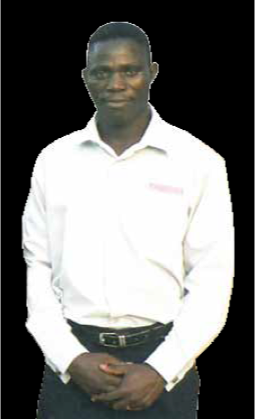Employment news -Students reach for the sky with SKA
Employment news -Students reach for the sky with SKA sadminLouise van Niekerk
The development of young scientists and engineers is among the major benefits of the South African Square Kilometre Array (SKA) Project. South African universities are therefore keen to make the most of the opportunities offered by the project. A total of 23 universities and other research organisations have already benefited from research grants. The project is also reaching out to schools, especially in the Northern Cape.

The SKA Project will be a powerful driver of scientific, socio-economic and human capital development throughout the African continent for the benefit of the world, according to Science and Technology Minister Naledi Pandor.
When the SKA project started in 2003 with South Africa’s initial bid to host the telescope, there were only 12 practising radio astronomers in the country. At the end of 2011, there were more than 60 radio astronomers with close to 100 engineers at organisations throughout the country working with this new generation of scientists.
The African bid to host the SKA is led by South Africa in collaboration with eight partner countries namely Botswana, Ghana, Kenya, Madagascar, Mauritius, Mozambique, Namibia and Zambia.
African stars
The project has created a keen interest at universities in all the partner countries to include astronomy in their physics degree programmes. Almost all the universities have introduced undergraduate courses in astronomy and astrophysics and plan to start postgraduate research in the near future.
Active collaboration among the Africa partner states and with universities in South Africa, as well as with Oxford University and the University of Manchester in the UK, the National Radio Astronomy Observatory in the US and the US-based National Society of Black Physicists, will provide the universities with access to course material, lecture exchange programmes and supervisory capacity.
Youth into science
In 2004, the South African SKA Project cre- ated a Youth into Science and Engineering Programme aimed at creating capacity in radio astronomy and engineering disciplines relevant to radio astronomy in Africa.
At the end of 2011, the project had supported 292 post-doctoral fellows and postgraduates and undergraduate students studying to- wards science and engineering degrees and research.
Among them is Bosco Oruru, who grew up as an orphan in a disadvantaged environment in Uganda.
Today, he is completing a PhD degree in astrophysics at the University of the Free State. He believes that studies in astronomy are at the heart of solving society’s greater problems. ”Astronomy embraces all aspects of science, physics, mathematics, chemistry, biology, engineering, and in Africa in particular, research is the way forward to eradicate poverty and ignorance,” Bosco said.
Many students like Oruru, who received bursaries from the South African SKA Project, have now joined the project as full-time employees.
Did You Know?
The South African SKA Project has provided funding to support:
- five research chairs for a period of 15 years’ worth a total of R225 million
- two professorships
- four lecturers and one research assistant
- 22 postdoctoral fellowships and 43 doctoral bursaries
- 74 MSc bursaries and 39 honours bursaries
- 61 undergraduate bursaries
- 35 bursaries for technical studies
- six internships.
For more information, call SKA South Africa: 011 442 2434 or visit the SKA South Africa website: www.ska.ac.za